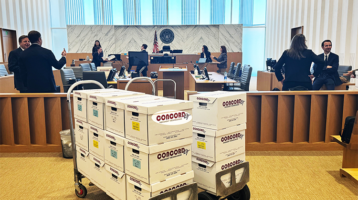Keywords vs Technology-Assisted Review: Are they mutually exclusive?
Recently in Bridgestone Americas, Inc. v. International Business Machines Corp., U.S. Magistrate Judge Joe Brown of the Middle District of Tennessee addressed the plaintiff’s request to use technology-assisted review (TAR) on a population of more than 2 million documents, but the corpus had already been culled using keyword search terms. The defendant objected arguing that the original case management order did not consider the use of TAR, and that having already applied search terms, the use of TAR would simply be “unfair.”
In his response, Judge Joe Brown acknowledged that the use of TAR in general should be considered a “judgment call,” and referencing Federal Rule of Civil Procedure 26, he noted discovery should “be tailored by the court to be as efficient and cost-effective as possible.” Given the number of documents at issue and related costs, he ruled in favor of the plaintiff leveraging TAR. He deemed it a necessary approach despite the plaintiff’s desire to change course midstream and keywords having already been used, but required that “openness and transparency” be integral to the proposed endeavor. This transparency required sharing the seed set of documents used to train the TAR algorithm, and the defendant was also permitted to use TAR for the sake of efficiency if they so chose.
Judge Brown’s order in this case supports the argument that the use of keywords or TAR should not necessarily be considered mutually exclusive approaches to discovery, and that it is reasonable to consider the use of TAR after keywords have been applied to a given corpus of documents, such as in this matter. Under the guidance of attorneys and search experts, the careful and systematic selection of keywords and their use in identifying documents to subject to TAR can be a particularly successful approach to uncovering responsive documents and ultimately reducing hosting and review costs.
As Judge Brown acknowledged, “no single, simple, correct solution” would be “possible under these circumstances” where there is a daunting volume of documents at issue. Combining approaches such as keyword search terms and TAR can yield defensible, efficient, and cost-effective results amidst such challenging discovery circumstances as in Bridgestone Americas, Inc. v. International Business Machines Corp.


